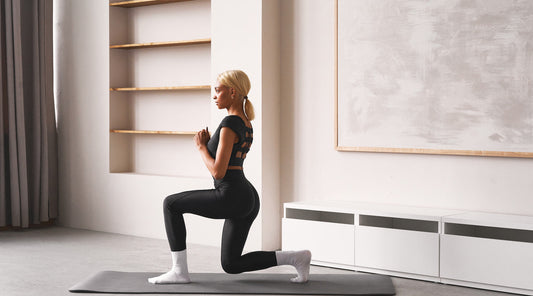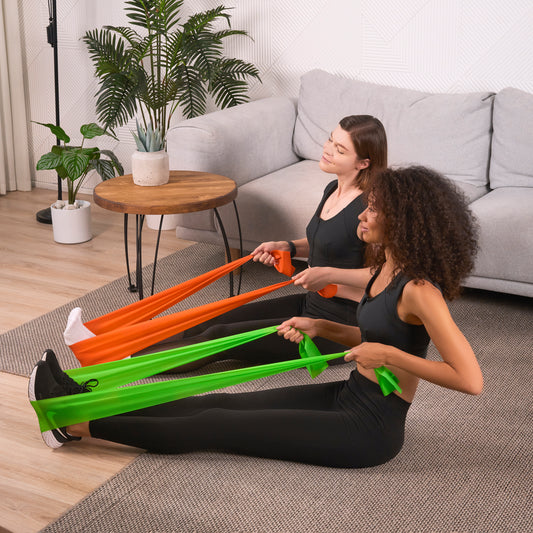When we think about gut health, we tend to focus on our diet, exercise routine, and stress levels. However, one aspect of our health that often goes overlooked is our posture. Yes, you read that right – the way we sit and stand can actually impact our digestive system and overall gut health. In this article, we’ll explore the surprising connection between posture and gut health, and provide some tips on how to improve your posture for better digestive health.
Why gut health is important
Our gut performs several vital functions such as digestion, absorption of nutrients from food and removal of waste products (detoxication). There is a huge number of good bacteria, collectively known as the microbiome resides in our gut which helps in nutrient absorption. They also prevent colonization by harmful organisms and work together with immune cells to address diseases. Besides it, numerous hormones support our overall metabolism as well as enzymes that facilitate digestion.
If you ever had a “gut feeling” or “butterflies in your stomach”, you can rely on that our gut is frequently referred to as our second brain because there are around 500 million neurons in our gut. They communicate with the brain or work independently of the brain to orchestrate gut function. Around 90% of serotonin, a neurochemical important in regulation of mood and feeling of happiness, is produced by the gut! Happiness comes from a belly. Recent studies on microbiome show that it has an effect on our brain and play a vital role in cognitive processes such as learning, memory, and emotional wellbeing. So gut health is crucial for our mind and body!
How Posture Affects Your Gut
To understand the link between posture and gut health, it’s important to first understand the anatomy of the digestive system. The digestive system includes a series of organs, muscles, and nerves that work together to break down and absorb nutrients from the food we eat. This system is controlled by the enteric nervous system (ENS), which is sometimes called the "second brain." The ENS communicates with the central nervous system (CNS) to regulate digestion, and it also plays a role in our overall sense of well-being.
Now, here’s where posture comes in. When we slouch or hunch over, we compress our organs and put pressure on our digestive system. This can lead to a variety of digestive issues, such as acid reflux, bloating, constipation, and even irritable bowel syndrome (IBS). Additionally, poor posture can cause the muscles in our abdomen to weaken, making it more difficult for us to properly digest our food.
Nutritional Therapist and self-confessed gut nut Eve Kalinik explains it, “On the other hand, good posture allows our organs to function properly and helps to promote healthy digestion. When we sit or stand up straight, we allow our organs to expand and contract as needed, which helps to prevent digestive issues. Additionally, good posture strengthens the muscles in our abdomen, making it easier for us to digest our food and absorb nutrients.” What’s more, specific posture weaknesses could lead to more direct symptoms. For instance, if you tend to hunch from the upper back then perhaps you could be more likely to suffer from reflux. Overarching or slumping from the lower back, on the other hand, could lead to bloating and gassy after-effects from a meal. A study “Influence of body posture on intestinal transit of gas” revealed that body posture has a significant influence on intestinal gas propulsion: transit is faster in the upright position than when supine.
In addition, sitting for prolonged periods of time even if you adopted a good posture is compromising your gut’s microbiome. It has been found that gut microbiome is larger and more diverse in people doing regular vigorous exercises. Staying inactive for long hours was associated with reduced counts of good bacteria in your gut!

The position of the diaphragm (in pink) in your body. It is a large dome-shaped muscle that sits under your lungs and above your gut.
Why slouching can cause bloating and reflux
The pressure that continuous sitting in a poor posture affects that food moves through us much slower and it’s more difficult for the body to move our food through us. This creates- a bloating and/or constipation-type picture. Diarrhea and loose stools are common too. There is also a neurological aspect of it. When you have changes in the shape of your spine, this creates interference on how the nerves in this particular area communicate with organs, muscles, glands and tissues of the body. Pressure on the nerves around the mid-back region specifically can result in the stomach not functioning properly and you suffer the symptoms of low acidity, high acidity, indigestion, reflux etc. Pressure on the nerves in the lower back region can interfere with the messages getting to the lower intestines causing their dysfunction. Basically, when we’re ‘squashing’ the diaphragm by slumping and/or hunching, it can affect the nerve signals that pass through it, causing to slow down.
The vagus nerve stimulates the production of hydrochloric acid that affects how we break down food in the stomach, so if this is also being impaired and is on the slow side, then food can sit in the digestive tract too long causing unpleasant symptoms such as gas, bloating and constipation. Essentially, what you can end up with is a backed up system. EVERYTHING in the body is connected and it certainly puts a different spin on ‘food for thought’. As nutritionist Eve Kalinik says: “Posture for, er, pooing. That’s having a ‘stool for your stool’ - no joke, folks. Having the feet slightly elevated on a footstool as you sit on the loo gives a smoother ride as the colon is at an optimum angle to do the job”.

Tips for Improving Your Posture
Now that we understand how posture affects our gut health, let’s take a look at some tips for improving our posture:
- Stand up straight. When standing, keep your feet shoulder-width apart and distribute your weight evenly on both feet. Draw your shoulders back and down, and keep your chin parallel to the floor.
- Sit up straight. When sitting, sit up tall with your back against the chair. Keep your feet flat on the floor and your knees at a 90-degree angle. Avoid crossing your legs or slouching forward.
- Take breaks. If you have to sit for long periods of time, take frequent breaks to stand up and stretch. This will help to prevent muscle fatigue and keep your posture in check.
- Strengthen your core. Exercises that strengthen your core muscles, such as planks and crunches, can help to improve your posture and support your digestive system.
- Train your muscle memory on how to maintain a good posture with the Etalon Posture Bra. It helps significantly improve results and get better body alignment.
- Practice yoga. Yoga poses like downward-facing dog, cobra pose, and triangle pose can help to improve your posture and stretch your abdominal muscles.
In conclusion, our posture plays a bigger role in our gut health than we might think. By making an effort to improve our posture, we can promote healthy digestion and prevent a variety of digestive issues. So, stand up straight, sit up tall, and give your gut the support it deserves!
Sources
https://www.getthegloss.com/health/fitness/how-simple-posture-tweaks-can-help-solve-your-gut-issues
https://vitrueremote.com/blog/what-happens-to-your-gut-in-prolonged-sitting-and-poor-posture/
https://www.spirohealth.co.uk/know-posture-can-affect-digestion/
Photo by Christopher Campbell on Unsplash
FAQs
How does my posture affect my gut health?
Why is gut health so important?
Can sitting for long periods harm my digestion even with good posture?
Why does slouching make me feel bloated or give me reflux?
What role does the vagus nerve play in digestion?
What are some tips to improve posture for better gut health?
Can posture help with bowel movements?
Trending
Try Etalon posture improvement products










1 comment
I found this article extremely useful. I found the tips for improving your digestion very helpful as i now realise that my posture has been the cause of many of my problems
thanks